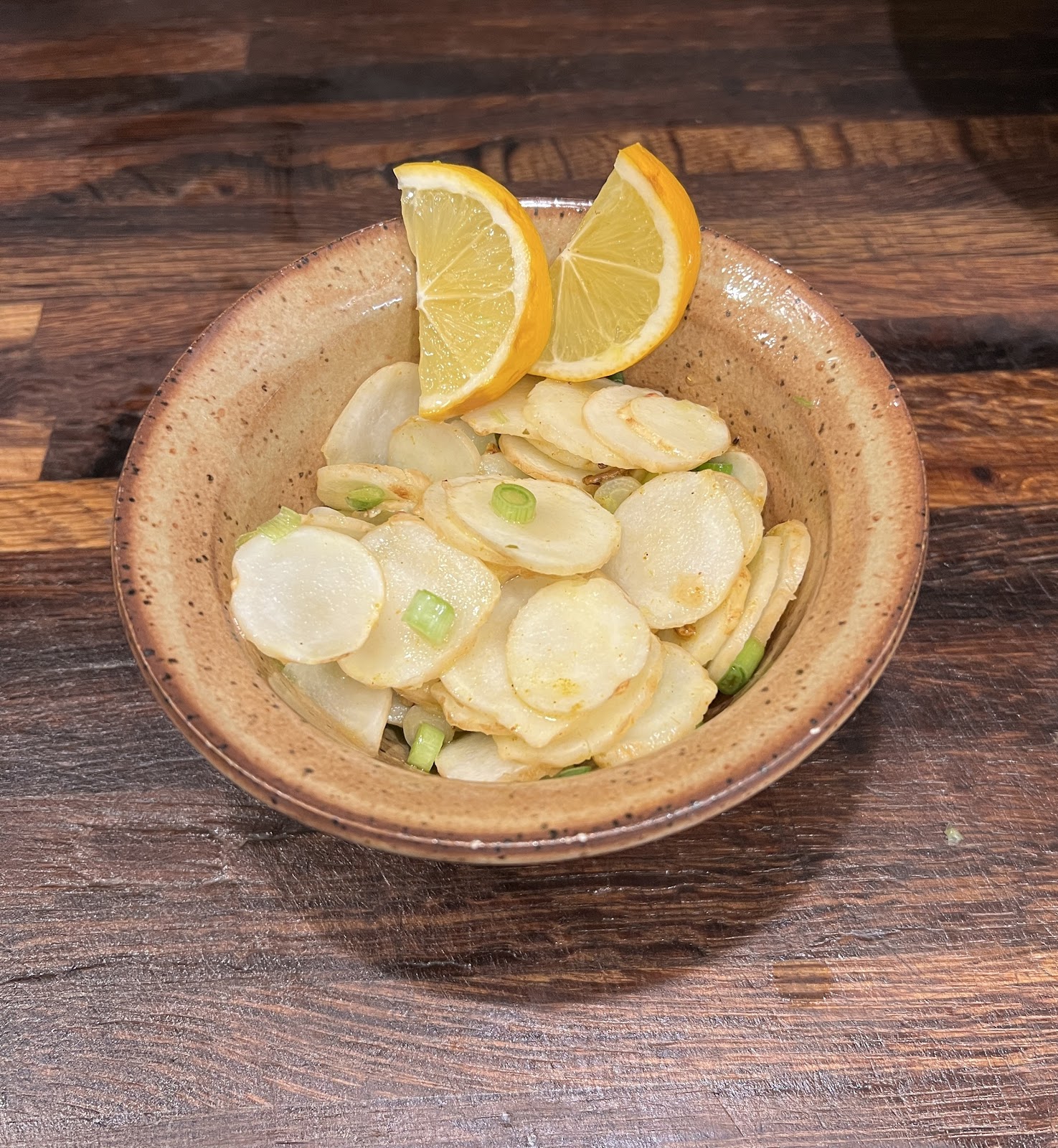Seasonal Recipe of the Week
Today we are going to talk about Jerusalem Artichokes, sometimes called Sunchokes, and sometimes Fartichokes! Let's start with some basic info compliments of The New York Times.
“One of the most abundant, curiously neglected and oddly named foods in America is the Jerusalem artichoke. Since its inception the name has involved a comedy of errors not only in this country but in France. The English name of the vegetable, which I find appealing to the taste and semantically captivating, has nothing deliberately to do with the capital of Israel, and that requires explanation. The Jerusalem artichoke is not an artichoke at all, as we know the more sophisticated globe artichoke. The Jerusalem version is actually related to the sunflower. The sunflower is called girasole in Italian, - it means gyrating or turning to the sun. And, at least according to folk etymology, girasole through some slip of nomenclature turned into Jerusalem. That is even more historically fascinating, considering that the vegetable in question is native to America. It was indigenous to the central United States and Canada and was first taken to France by Samuel de Champlain in 1616, from which moment it began to flourish. After its introduction to France, the easily proliferating root vegetable was first referred to as poires de terre (earth pears) or artichauts de Canada (Canadian artichokes).” — The New York Times 1981
Then there is the “fartichoke” business, which is not just a rumor, trust me! It has to do with the high levels of inulin, a soluble fiber, which gives them their sweetness but passes through your digestive system intact until it reaches the colon where gut bacteria breaks it and releases the gas. There are remedies for this such as slow roasting or soaking them in salt water before simmering them in milk. The addition of caraway or fennel seeds is also said to help, which is great news because those flavors work perfectly together. Other great options are to pickle them, purée them, or use them with potatoes and apples in a soup.
Why discuss this now? Because last week my lovely neighbor "Dan the Fig man" (so-called because he grows hundreds of fig trees in his own personal Garden of Eden ... as well as peaches, he raises chickens, cares for pigeons, and generally is a man at one with nature) called to offer me some Jerusalem artichokes and I was delighted! I tried them 3 ways: a thin sliced marinated salad; a chunky pickle, and roasted herbed slices.
Will report back later about the pickles because they take a while but the other 2 items are fast and delicious. Here are two simple recipes which you can elaborate on and make your own:
Jerusaleum Artichoke salad
Ingredients
8 ounces Jerusalem artichokes, soaked in cold water for a few minutes then brushed clean with a vegetable brush
3 tablespoons lemon juice (this time of year Meyer lemons are available and extra fragrant and delicious)
1/2 teaspoon orange zest
Sea salt to taste
a few grinds of black pepper
1/4 cup of a good quality fruity olive oil
2 scallions, cut into thin slices
Procedure
Once your chokes are free of dirt, slice them very thinly — I recommend using a mandoline slicer. Soak them in some salted water with 1 tablespoon of lemon juice for 30 minutes, then drain well. If they are too wet, the oil dressing will not stick. Then mix together the remaining lemon juice, oil, orange zest salt and pepper and scallions. Let marinate for at least 30 minutes. Now eat!
Roast Jerusalem Artichokes
Ingredients
8 ounces well-scrubbed Jerusalem artichokes(see above instructions) cut into 1/4 inch slices on the diagonal
3 Tablespoons olive oil
Salt and pepper to taste
1 teaspoon fresh chopped herbs, I used Rosemary (still growing from my garden), thyme, and tarragon (you can also use dried herbs)
Procedure
Preheat your oven to 400 degrees and lightly oil a sheet pan. Toss all the ingredients together and spread out on sheet pan. Roast 20 minutes, or until they are tender in the center and browned on the outside. Adjust salt and pepper and serve.




No comments :
Post a Comment